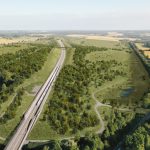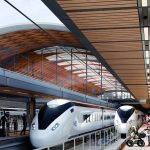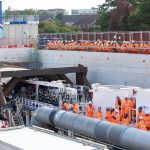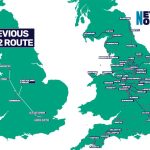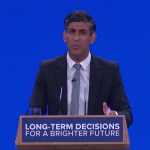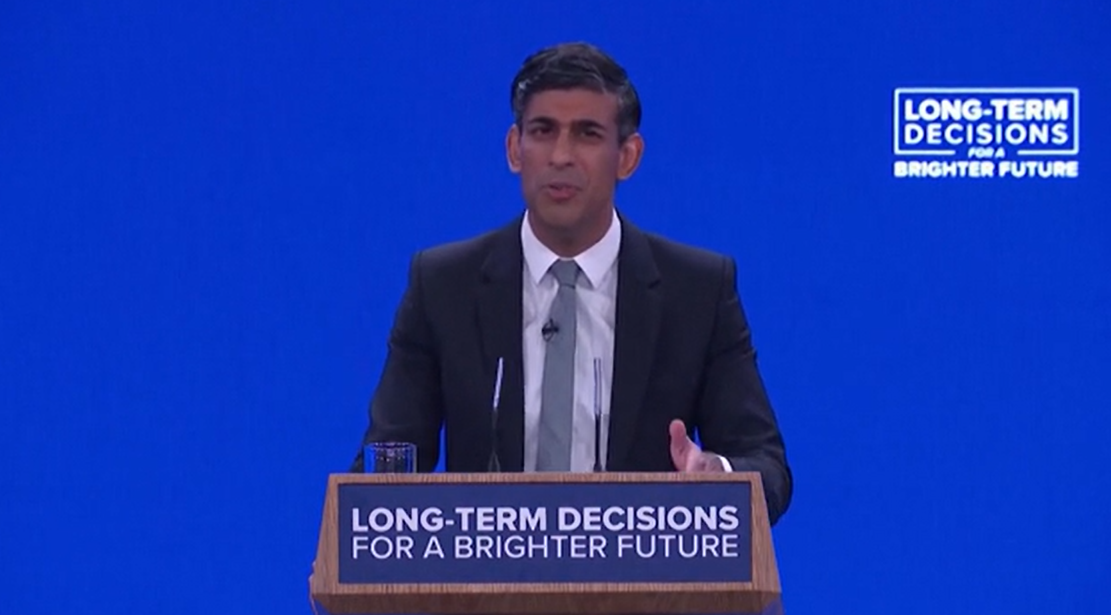 The British Prime Minister Rishi Sunak has announced that the rest of the High Speed 2 project – the HS2 Northern leg to Manchester – is cancelled and the saved costs worth GBP 36 billion (EUR 41.6 billion) will be diverted for transport projects in the North and Midlands.
The British Prime Minister Rishi Sunak has announced that the rest of the High Speed 2 project – the HS2 Northern leg to Manchester – is cancelled and the saved costs worth GBP 36 billion (EUR 41.6 billion) will be diverted for transport projects in the North and Midlands.
“HS2 is the ultimate example of the old consensus. The result is a project whose costs have more than doubled which has been repeatedly delayed and is not scheduled to reach here, in Manchester, for almost two decades and for which its economic case has massively weakened with the changes to business travel post-Covid. I say to those who back the project in the first place, the facts have changed and the right thing to do is when the facts have changed is to have the courage to change direction. And so, I am ending this long running saga. I am cancelling the rest of the HS2 project and in its place we will reinvest every single penny GBP 36 billion in hundreds of new transport projects in the North and the Midlands across the country (…) that will make a real difference across our nation,” Rishi Sunak said during the annual Conservative Party conference held in Manchester on October 4, 2023.
GBP 36 billion will be invested in hundreds of transport projects across the country – with every region set to receive the same or more transport investment on an unprecedented scale as a result of the change. A further GBP 12 billion (EUR 13.9 billion) on top of this figure will be set aside for faster connectivity between Liverpool and Manchester which will allow the delivery of Northern Powerhouse Rail (as previously planned) including high-speed lines.
The HS2 project currently accounts for over one-third of all Government’s transport investments, preventing the Government from spending on people’s genuine priorities and doing little to improve the journeys that people make the most.
Thus, the Government will deliver HS2 between Euston in central London and the West Midlands as planned, with a station at Old Oak Common and Birmingham Interchange and branches to central Birmingham and Handsacre, near Lichfield – where HS2 trains for Manchester, Liverpool and Scotland will join the West Coast Main Line.
Rather than delivering HS2 Phase 2 new line between Birmingham and Manchester (HS2 Northern leg to Manchester), the new plans aim to deliver increased frequency and quality of transport infrastructure across the whole country.
In 2009, the Labour government set up the HS2 Ltd company to look at proposals for a new high-speed line. HS2 was supposed to form a 300 mile (482 km) high-speed rail network. In 2009, the High Speed 2 project was estimated at GBP 37.5 billion and in 2019, the costs increased to around GBP 100 billion. Originally, every pound spent on HS2 was set to deliver GBP 2.30 worth of benefits back to the taxpayer. Despite revising the scope, benefits could fall as low as 80 pence for every GBP 1 spent.
The Royal Assent for the Phase I of HS2 project has been issued in 2017 with the main construction works being executed in the last three years. The project is now supporting 30,000 jobs around the UK, including 1,300 apprenticeships. The construction of the fits phase of the project is taking place at several hundred sites along the route between London and West Midlands and in the next two years the project will enter the design and delivery of the railway systems (including signalling, tracks and power systems).
This summer, the project reached milestones as the production of the concrete tunnel segments was launched, while at the end of July, the first two tunnel boring machines completed the first 1.6 km of twin–bored tunnel in London.
In 2021, Hitachi-Alstom joint venture signed a EUR 2.2 billion contract to design, manufacture and maintain the 54 eight-car trains that will operate on the first phase of HS2 (London – West Midlands – Crewe route).
Unveiling its vision, the Prime Minister said that it has stopped all HS2 phases beyond Birmingham to reinvest in the transport projects in the North and Midlands aiming at “quadrupling the number of trains from Sheffield to Leeds, cut journey times into Manchester and electrify the lines through to Hull, build a new line and station and Bradford, sort the congestion out on M6, A1, A2, A50, deliver the Midlands rail hub. The Conservative Party leader has also launched its campaign supporting the public transport in towns and cities and around our local areas to increase connectivity in the benefit of people.”
Towns, cities and rural areas will benefit from improved transport infrastructure through GBP 19.8 billion (EUR 22.9 billion) reinvested in the North. These projects include:
- A new station at Bradford and a new connection to Manchester (GBP 2 billion);
- Upgraded and electrified lines between Manchester and Sheffield, Sheffield and Leeds, Sheffield and Hull, and Hull-Leeds (GBP 3 billion);
- New mass transit system in West Yorkshire (GBP 2.5 billion);
- Increased funding for local transport in the North’s six city regions (GBP 4 billion);
- New funding for local transport across all areas in the North outside the six city regions – smaller cities, counties, towns and countryside (GBP 2.5 billion); and
- New funding and investments in roads reopened train lines and new stations.
Share on:



